Elad Ben-Dror is
an orientalist and historian,
associate professor in the Middle Eastern Studies Department at Bar-Ilan University.
His research deals with various aspects of the Arab-Israeli conflict.
Author of the book "The Road to 19 November" (Yad Ben-Zvi Publishing)
Prof. Elad Ben-Dror, this week marked the 75th anniversary of the 29th in November, the day on which the United Nations Assembly decided to end the British mandate and establish two independent states in the Land of Israel. But for some reason, it seems that this chapter in the life of the State of Israel is dimmed in the Israeli collective memory to a great extent.
"I recognize entire chapters in our national consciousness that are blurred without explanation, and 29 November is one of them.
People know this date mostly as a title.
If you ask them a little further - what was the process that led to the partition decision, and who is the UNESCO committee - those 11 representatives who recommended the partition of the land and the establishment of a Jewish state, the lips of most people, especially the younger generation, will remain sealed.
"When I wrote my book, 'The Road to 19 November' (published by Yad Yitzhak Ben-Zvi, which was also published this week in the English language, ref), I was amazed at how it was possible that this had not been written about before. Many studies were done on battles and wars, they were burned In the mind in the form of monuments and studies in schools, but the political campaign is not talked about enough. I encounter people who think they are readers and knowledgeable, including students who study the field, and do not know essential chapters in the political campaign that led to the establishment of the State of Israel.
"As a historian and researcher, I strive to conduct an objective study that strives to reach the historical truth without any other consideration, but as an Israeli and a Zionist, I relate to this event in its Zionist dimension and think that it should have a greater volume in the Israeli public. The state should have introduced the episodes of this political process in a more significant way to the public, and certainly to the younger generation."
We haven't really seen the people dancing in the streets since the original November 29. Isn't that absurd?
"It's absurd, unequivocally.
Furthermore, the Palestinians mark this date today at the UN General Assembly. Resolutions that seek to upgrade the status of the Palestinian Authority in the UN come up precisely on the 29th of November, and the rationale is - 'You talked about two states and only one state was established. What about us? '
I believe that in recent decades this date accompanies the Palestinians in a more significant and deeper way, while with us its status is diminishing more and more.
"When I visited the UN, a member of the Palestinian delegation told me a sentence that has followed me ever since: 'In a few years, November 29 will be a Palestinian date more than a Zionist date.' They are doing their part, and the UN is mobilizing.
In this celebration, Israel is in a sense used as a punching bag"
"When I visited the UN archives as part of my post-doctorate, a member of the Palestinian delegation to the UN told me a sentence that has followed me ever since: 'You will see that in a few years November 29 will be a Palestinian date, more than a Zionist date.'
So they do their part, and the UN also mobilizes, and in this celebration Israel is in a sense used as a punching bag. When I served as the head of a department and said that a conference should be organized every year to mark the 29th of November, there were people from the department who laughed.
Some of my friends sent me 'Happy Holidays' messages this week, jokingly.
I have no explanation for this nonsense."
The government should set a national day on the issue, or maybe it's already too late?
"Certainly, a state event, a regular ceremony, is required, I don't think it's too late. So, for example, on November 30, the expulsion of the Jews from Arab countries is celebrated. This is a relatively new date in the Israeli consciousness, and yet you can see how it is gaining volume in the Israeli public. When I organized A conference on the 19th November that did not include the topic of expelling the Jews from Arab countries, I received angry emails afterwards.
This trend is gaining momentum and it is good that it is so, but it is not clear why November 29th is precisely in a declining trend in consciousness and national memory.
Who was behind UNESCO?
In noting the date there is also importance in everything related to the legitimacy of the State of Israel.
"Today, those who challenge the very legitimacy of the State of Israel, describe the process at the UN from its inception as manipulation.
According to this narrative, it was the USA that was behind the UNESCO commission's investigation.
According to him, the Americans did not want to propose the establishment of a Jewish state themselves, so they made sure that most of the UNESCO representatives were pro-Zionists. Later, as it were, the Americans manipulated the representatives of this committee so that they would support the establishment of a Jewish state. I thoroughly examined this conspiracy in connection with UNESCO in my research , and it is not true."
What about the Hebrew-foreign Shatanz of the date?
"Actually, they changed this date because it was significant to the Jewish people. By the way, it wasn't the first time. The residents of Tel Aviv are surely familiar with the second square in November, which marks the Balfour Declaration. It was the first political victory for the Zionist movement since the Cyrus Declaration. That November came Also 29, and made a kind of adjustment to the first date.
The Hebrew Academy believes that the Shatanz base is actually the marking of an event of great importance to the Jewish people, and at the same time being directly related to the nations of the world.
"I tend to agree that this is also one of the reasons for its special structure."
The war as a symptom
It can be said that we have already heard a lot about the 29th of November, but it turns out that there is still more to update. After all, there were international representatives here who wrote entire diaries about the country on the way and their impressions of the Jewish settlement, but it turns out that there is not really much interest in those diaries.
"Take for example the Guatemalan representative, Jorge Garcia Grandos, a pro-Zionist who pushed for the establishment of the state.
He wrote a travel diary that was published in 1949 in Hebrew, English and Spanish.
I recently met with his granddaughter, and she told me something that amazed me: the book he wrote, about the UNESCO committee and the 9th of November, is taught as part of the compulsory studies in schools in Guatemala.
I asked her why, and she answered that Guatemala does not have much history in the international arena, and such an international historical document is of great national value to them.
Do you understand?
At that moment the sad thought crossed my mind that the students of Guatemala know the story of UNESCO and the partition decision much better than the students of Israel."
"Begin was in the underground as commander of the IDF.
He met with three UN people in an apartment in Tel Aviv, at 74 Shinkin Street. They were blindfolded to avoid surveillance.
They asked him: If we recommend a Jewish state, will you fight the Zionist leadership?
He answered no.
It was significant"
There is something sad about that, but I believe it is beyond one emotion or another. This has a national and international impact.
"True, because today the focus is more on the war in 1948, and the description that remains is that this country was established only by force of arms."
But the war is only a symptom, a product of the political work.
"The war only occurred after a political decision by the United Nations, according to which a Jewish state should be established in the Land of Israel, and more precisely - it broke out as a result of this decision after the Arabs no longer agreed to accept it.
Furthermore, the British announced at the beginning of the session of the UN General Assembly that they would withdraw from Israel - regardless of whether the partition decision was accepted or not at all. So consider a scenario in which the decision would not have been made in November 19th, the British would have withdrawn, and there would still be a war after which a state arose.
In such a situation, that country had an extremely shaky political-moral base in the international arena."
"Wake up at night from stress"
If we talk a little about the UNESCO committee itself - what do we know about the representatives in the personal, cultural and political aspects, as well as their independence in the way decisions are made
? by the countries they came from.
I got to their documents and diaries, in such a way that you can wonder a little more about their tank and put together a profile for each representative.
The two most important representatives were the Swede, Emil Sandström, who served as the chairman of the delegation, and the Canadian Ivan Rand. Both served as judges in the Supreme Court of their countries and had brilliant legal careers. Their countries made it clear that they were free to make decisions as they saw fit.
"Both came to the conclusion that a Jewish state should be established, although each of them thought of a different partition model. Among them, at one pole were pro-Zionist representatives from Guatemala and Uruguay who came with a prejudice, and it was clear that they would support the establishment of a Jewish state. At the other pole stood pro-Arab India and Iran , and there too - it is clear that no matter what the representatives think, the countries' decision has been decided in advance. In between there were other countries that thought and deliberated. Their representatives arrived by surprise at the kibbutzim and many other sites and made surprise visits to get an objective picture of the situation."
It was important to them to succeed, to do their work faithfully.
"Some of them wrote in their diaries that they woke up at night because of the pressure of making the decision. They were characterized by a sense of mission, and most of them felt that they were on a mission that would change destinies. Some of them knew the story of the Jewish people, and some of them filled in gaps. Some of them even flew to the displaced persons camps in Europe. They also held unmediated meetings with residents The Yishuv, and they would tell them their personal story, and even beg them for the state. It is evident from the various documents that they were attentive to this, and this along with their awareness of the Palestinian problem."
Not a simple conflict.
"They understood that there is no good solution here. That the Jews do deserve a state, and on the other hand - that there really is no solution to the Jewish-Arab conflict. The Arabs sent them a message by all means, according to which they will not be ready to recognize the existence of a Jewish state, not even a small one. From the point of view of the Palestinians, this is a resounding miss If they had agreed to a small Jewish state, the course of history would have changed."
The members of the committee were very bothered by the Arab position, so even though the local Arabs boycotted the committee, some of its representatives managed to meet secretly with senior Palestinian figures.
"True. Part of the committee's activity was carried out in secret. Among other things, much effort was devoted to deeply understanding the Arab position. In a bundle of documents that I located in the UN archives, there are pointed questions from the members of the committee in 'one-on-one' meetings, designed to examine whether there is a chance that the Palestinians will compromise
The most senior person interviewed was the secretary of the Supreme Arab Committee, Dr. Hossein Alkhaldi. Despite the original effort and the various personalities interviewed, these meetings did not lead to any breakthrough."
Even in the secret arena, in the operation that was responsible for Walter Eitan, who is considered the founder of modern diplomacy of the State of Israel, and who welcomed the commission of inquiry on behalf of the United Nations, efforts were made to "match" the commission members with local people from their country of origin
. Languages of all kinds, settled almost naturally near the members of the committee at various events and places.
In the various places they toured, UNESCO representatives encountered young people, some of them refugees of the Holocaust, who told them their life stories. Even the Yugoslav representative, Dr. Joze Briley, whose mother tongue was a special dialect of Slovenian, had the privilege of meeting a young man who spoke to him in his language.
He had no idea that he was the only man in all of Israel who mastered this dialect."
The members of the committee, for their part, also hunted for Begin, and reached him despite the anger and wrath of the British.
"Begin stayed underground and hid from the British as commander of the Etzal.
He met with three UN officials in an apartment in Tel Aviv, at 74 Shinkin St., and the preparation for the meeting unfolded like a thriller: they were blindfolded and taken for many rounds in the car to avoid surveillance and the discovery of the location of the apartment. They asked him - if we recommend a Jewish state, will you fight the leadership The Zionist? This was a significant parameter, because the Etzel was an organization with power and weapons."
"The date was changed because it has no meaning for the Jewish people, and not for the first time. The residents of Tel Aviv are familiar with Square B in November, commemorating the Balfour Declaration.
It was the first political victory for the Zionist movement since the Cyrus Declaration.
That November the 29th arrived, and they made some sort of adjustment to the first date"
What did Begin answer?
"He answered no. He said they will disarm and submit to the elected leadership, and that they have the strength required to win a military campaign."
This is a critical detail. This is how they realized that if a state is established - there will be order, organization, not militias.
"Exactly. This shows the maturity of a society to establish a state. A very important meeting in this context was held with the heads of the Haganah - who stated that they were prepared and ready militarily to stop an Arab attack. This was also critical evidence that allowed the committee to recommend the establishment of a Jewish state, with the understanding that this state would have The ability to defend itself."
I suppose that reaching these testimonies and other documents you located is an exciting event in itself.
"It has already happened that I touched a document and said, 'By God, this is a historical document.' I discovered documents that no one had access to before me, even though they had been open to the public for decades. They are of interest to almost everyone. I stuck a yellow note to one of the documents, with the intention of returning to it the next day, but in fact I only returned to it after five years. The note remained in exactly the same place. It amazed me. History is just waiting for us to uncover it."
For suggestions and comments: Ranp@israelhayom.co.il
were we wrong
We will fix it!
If you found an error in the article, we would appreciate it if you shared it with us

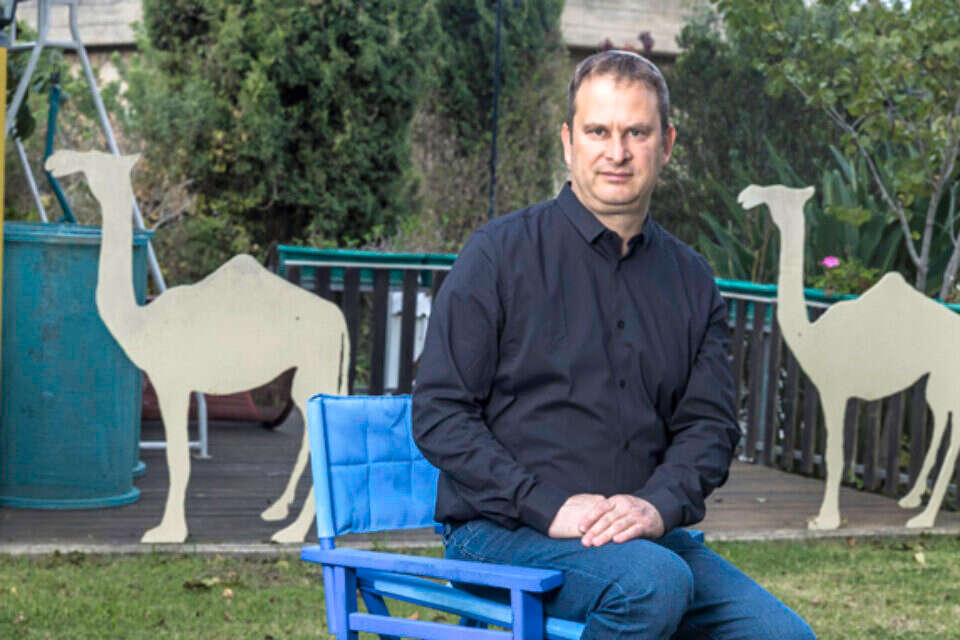
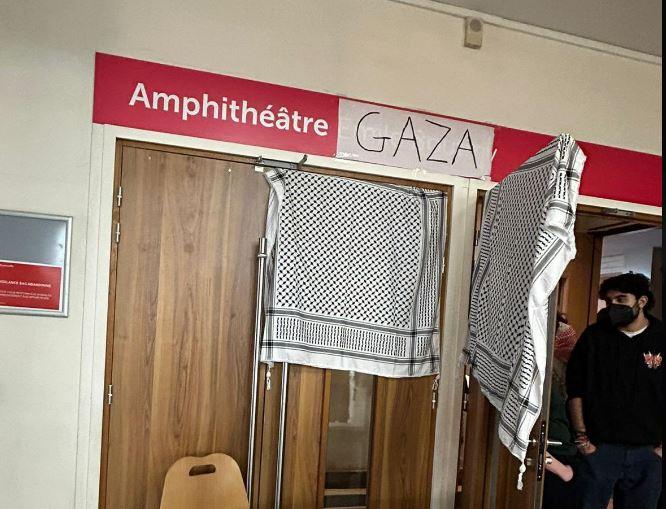

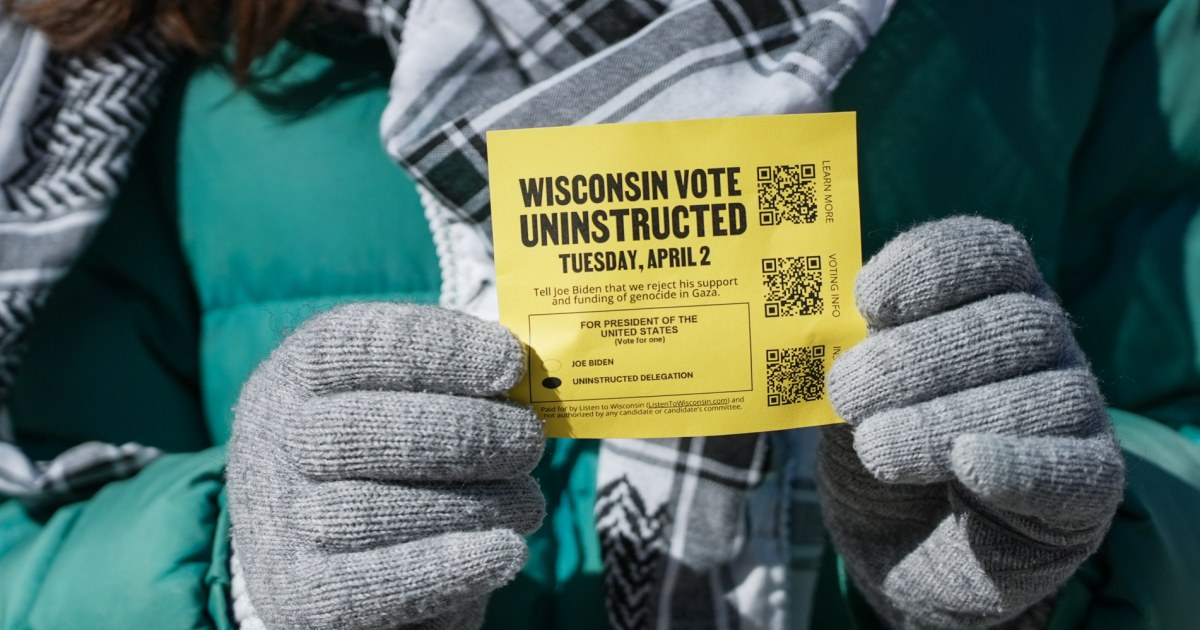
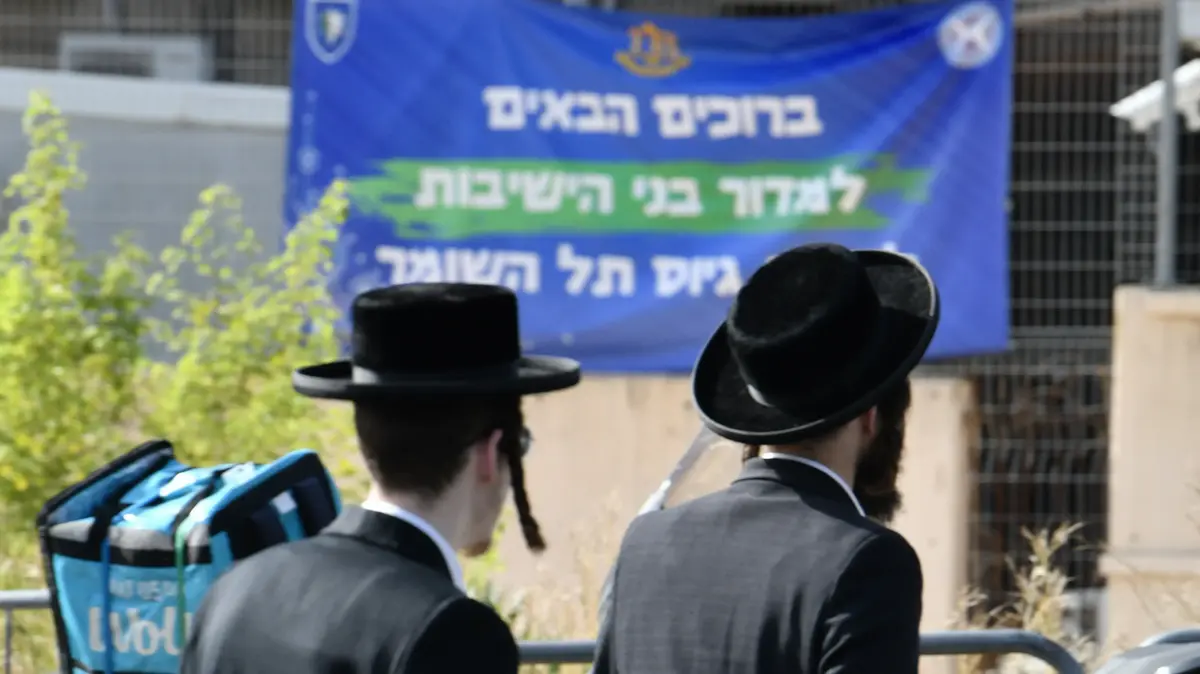
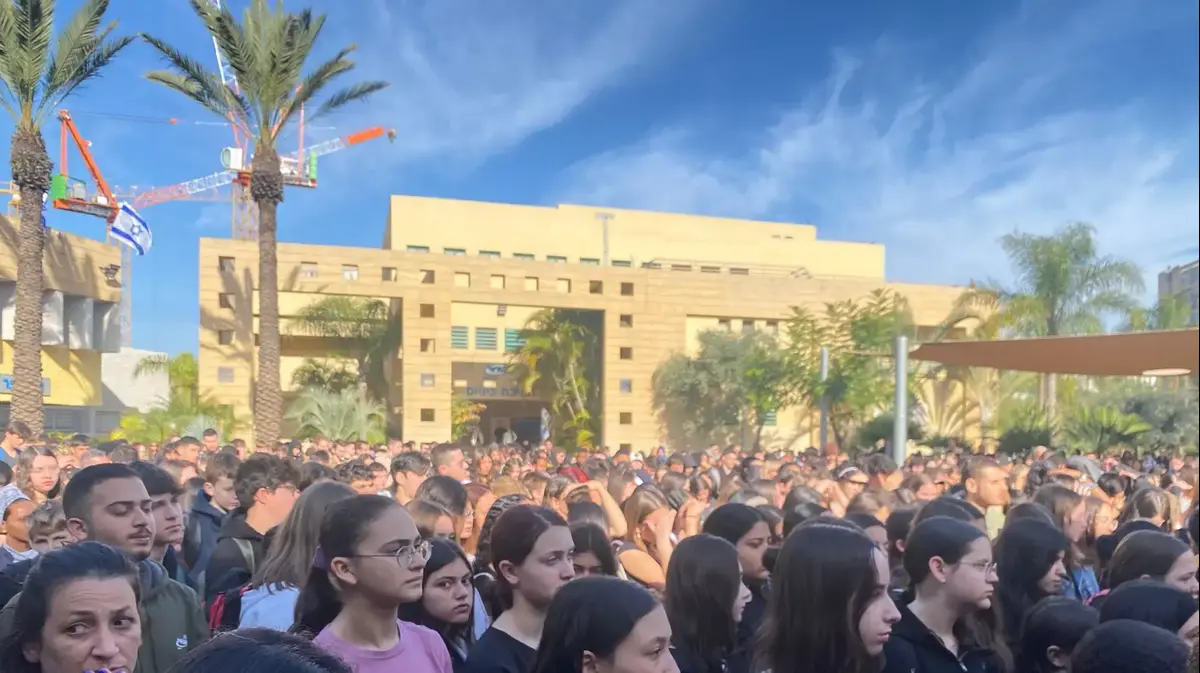
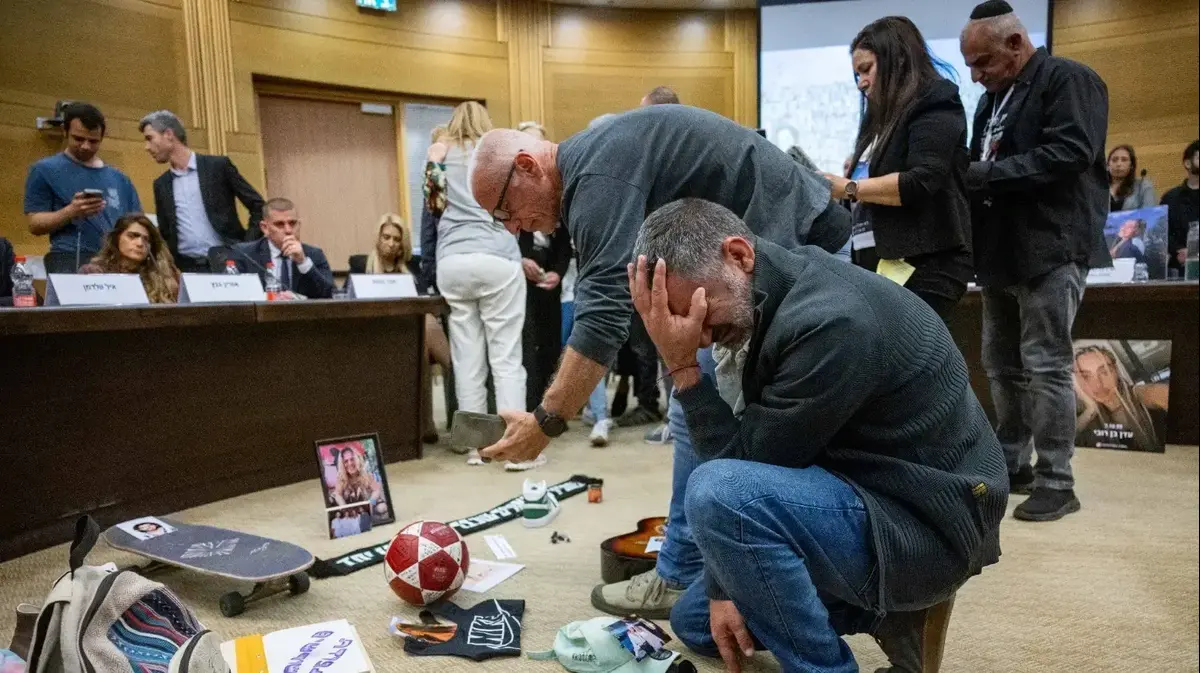
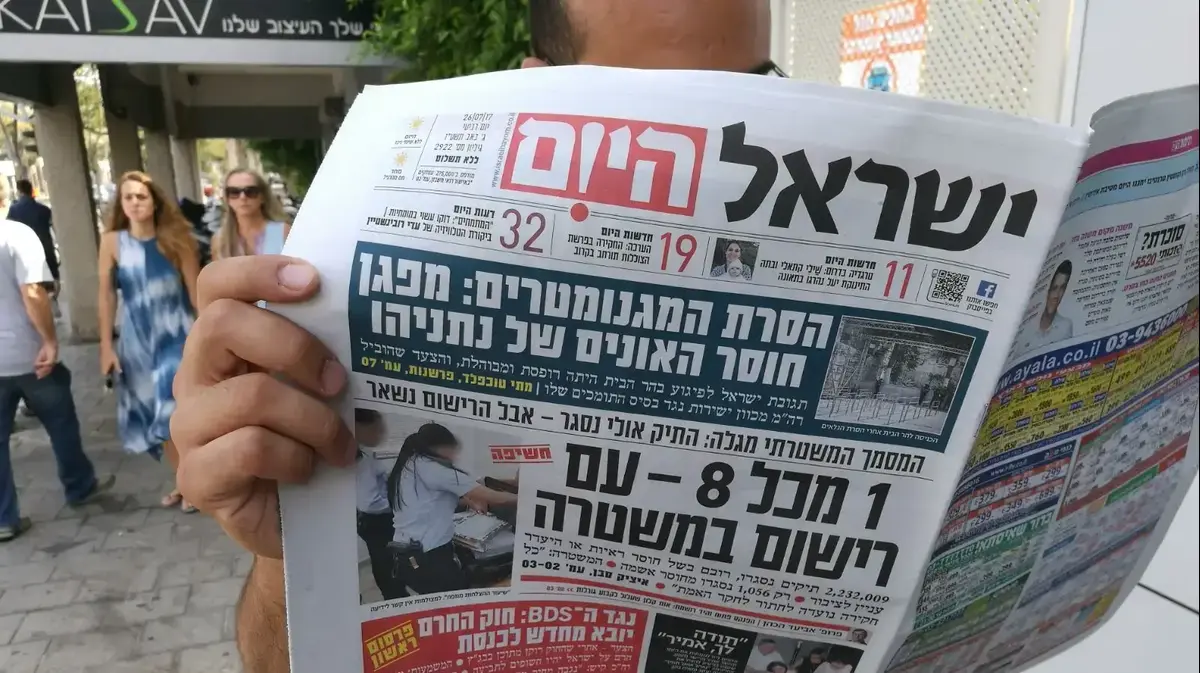
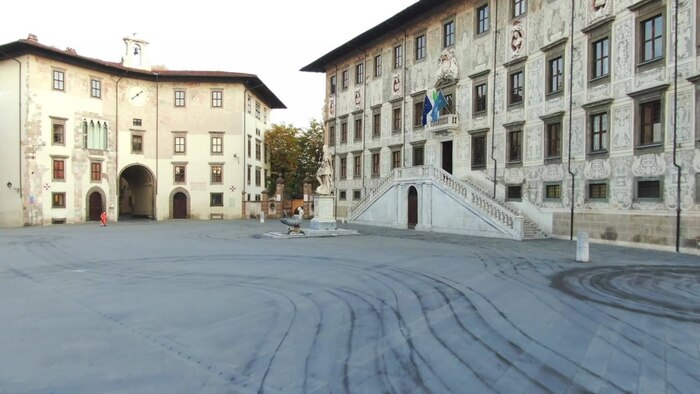

/cloudfront-eu-central-1.images.arcpublishing.com/prisa/KMEYMJKESBAZBE4MRBAM4TGHIQ.jpg)


/cloudfront-eu-central-1.images.arcpublishing.com/prisa/EXJQILQR5QI7OMVRTERD7AEZAU.jpg)
